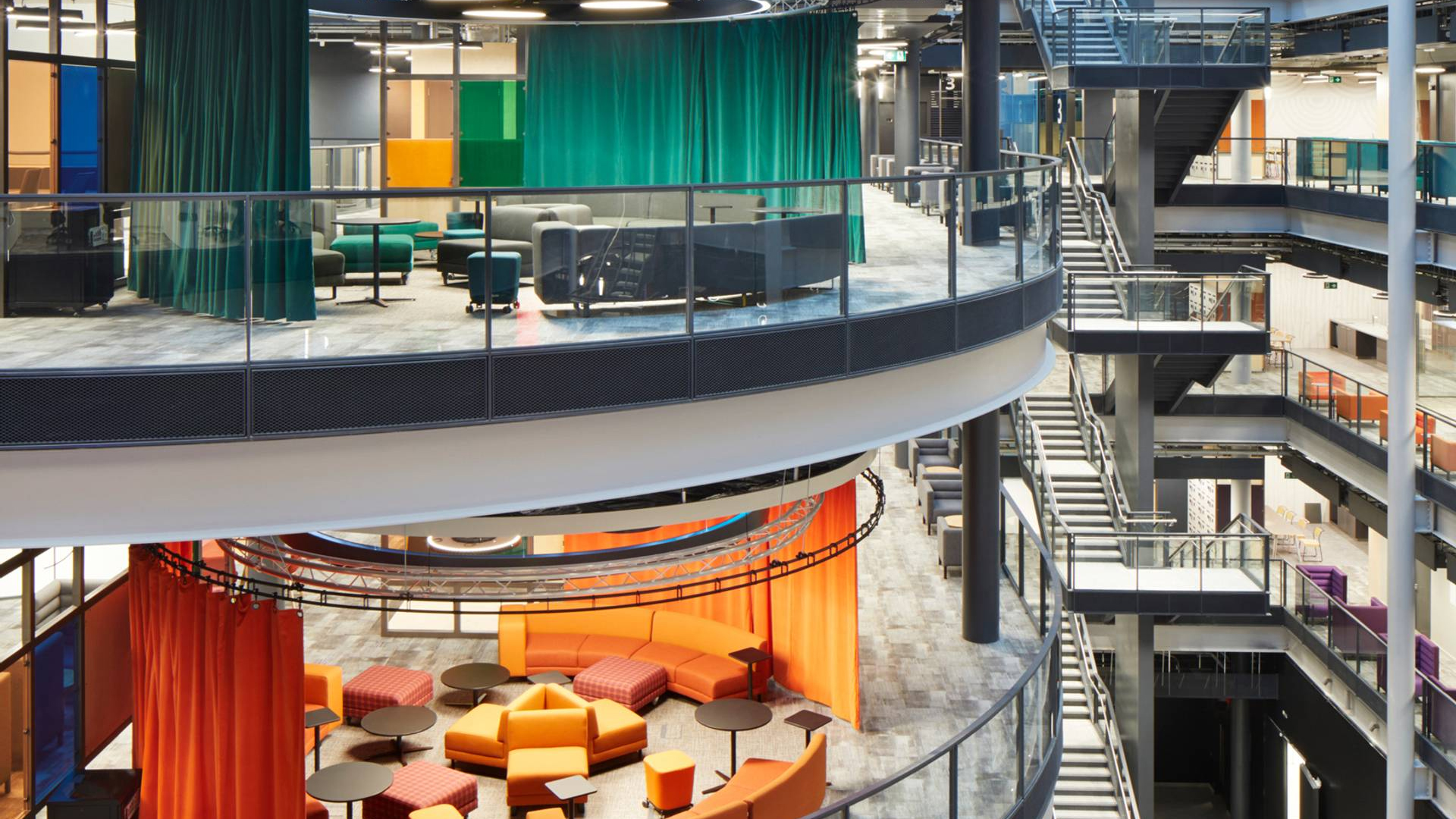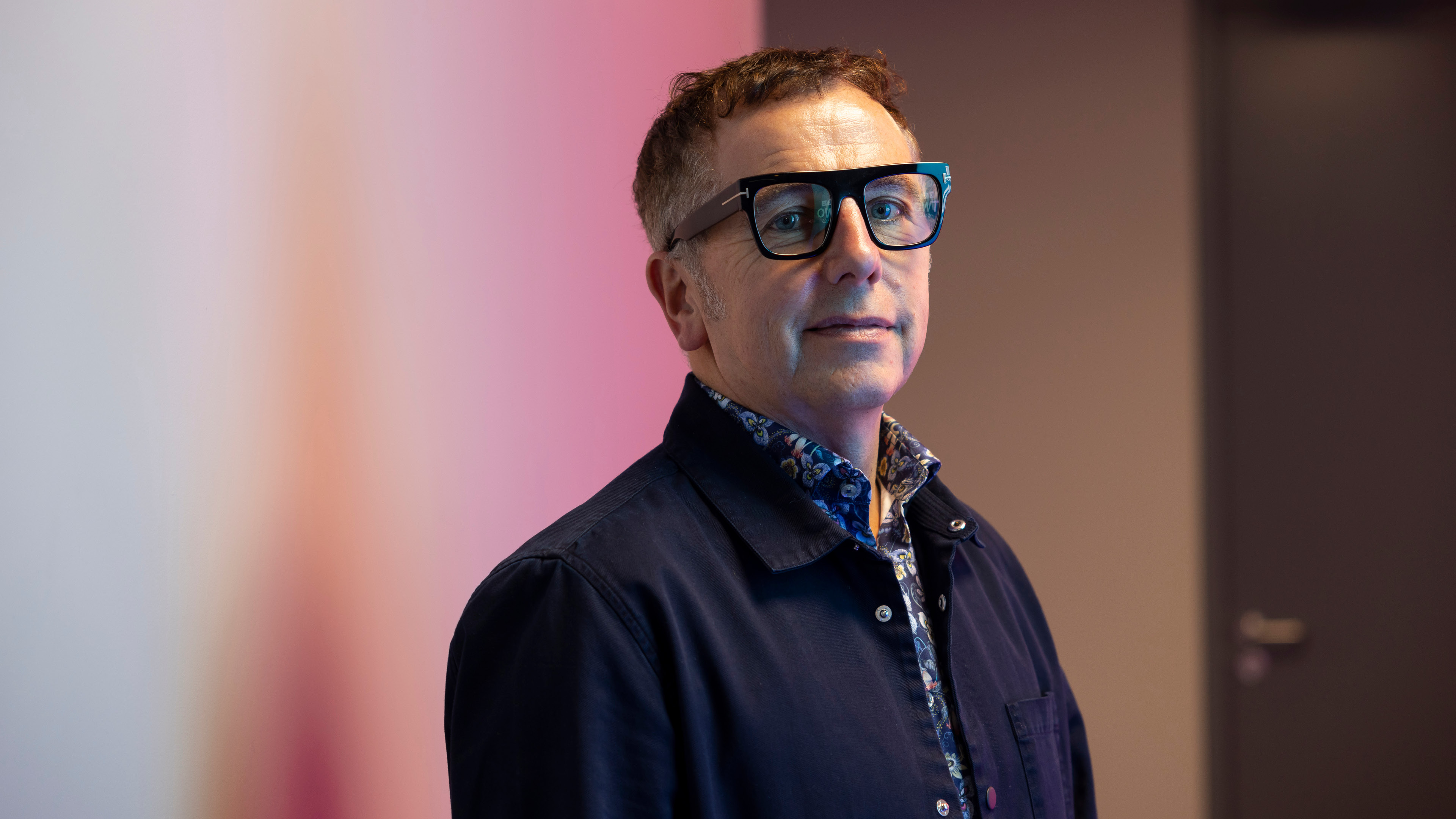
Photography by David Oates, shot at BBC Wales HQ in Cardiff
The teenage ambition of Alan Bainbridge FRICS, the BBC’s director of workplace and corporate real estate, was to be an architect.
But, feeling he might not have quite the right skills, he opted to train as a quantity surveyor instead. Now, a few decades later, Bainbridge is working for the world’s largest public service broadcaster, running its property estate across 150 locations in the UK.
In his 15 years with the British Broadcasting Corporation, he’s overseen the transformation of its estate and helped to design and deliver some of the world’s most cutting-edge working environments. His role, he says, has finally enabled him to exercise that long-held “design muscle”.
In the UK, the BBC is a national institution that is knitted tightly into the fabric of British culture. So much so, that Broadcasting House in London, which Bainbridge oversees, is classified as essential national infrastructure that must be kept running 24/7.
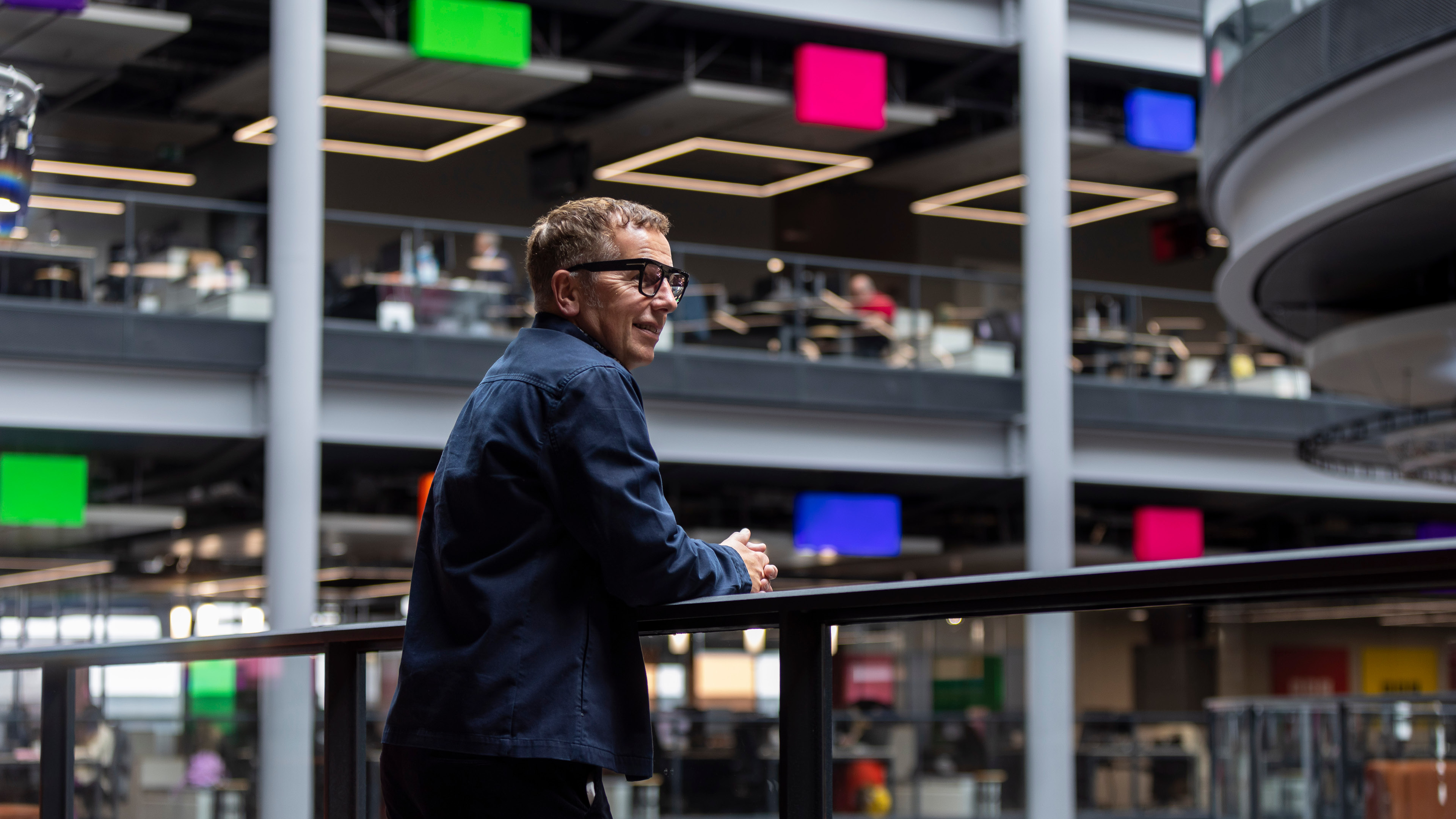
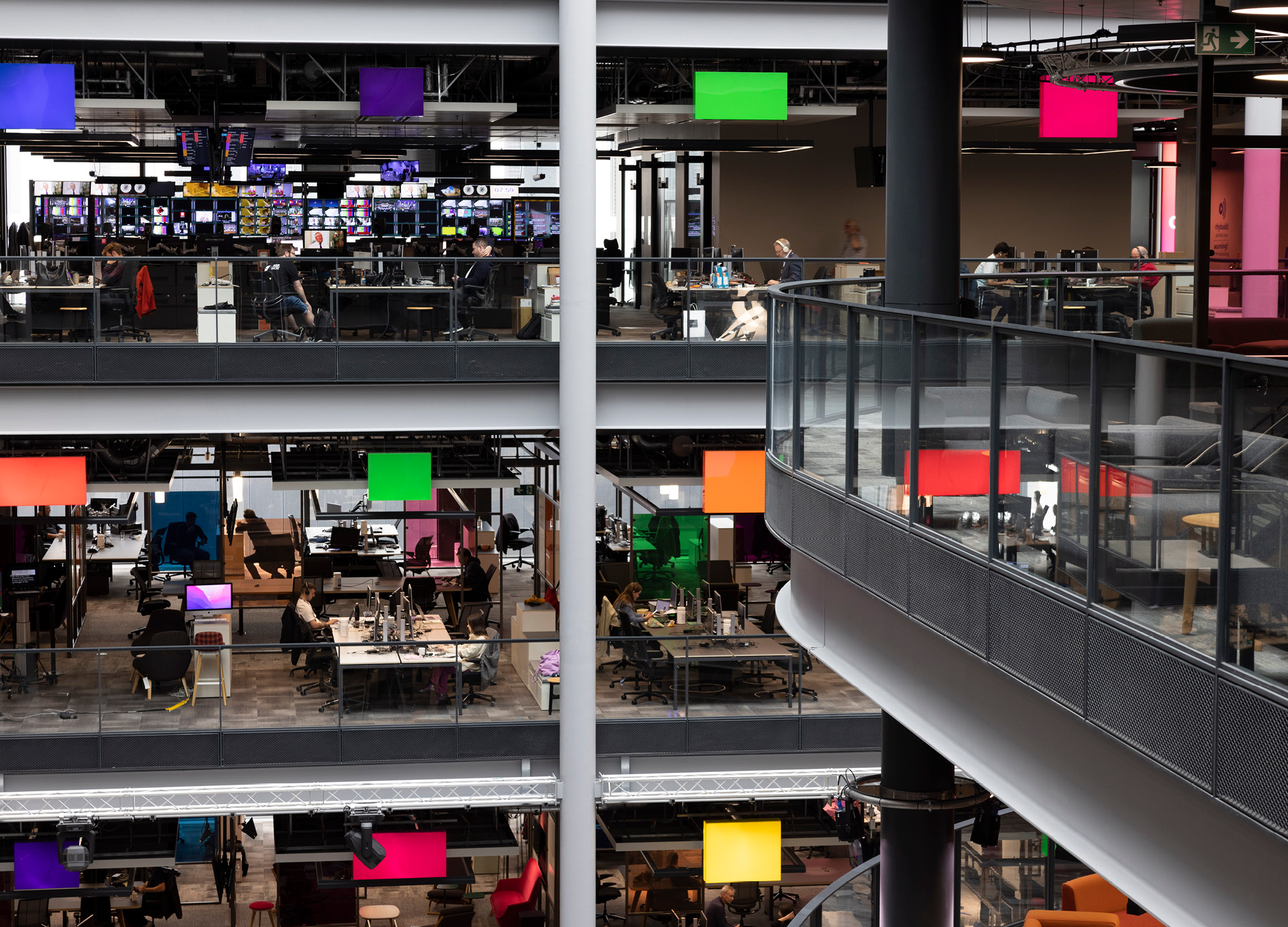
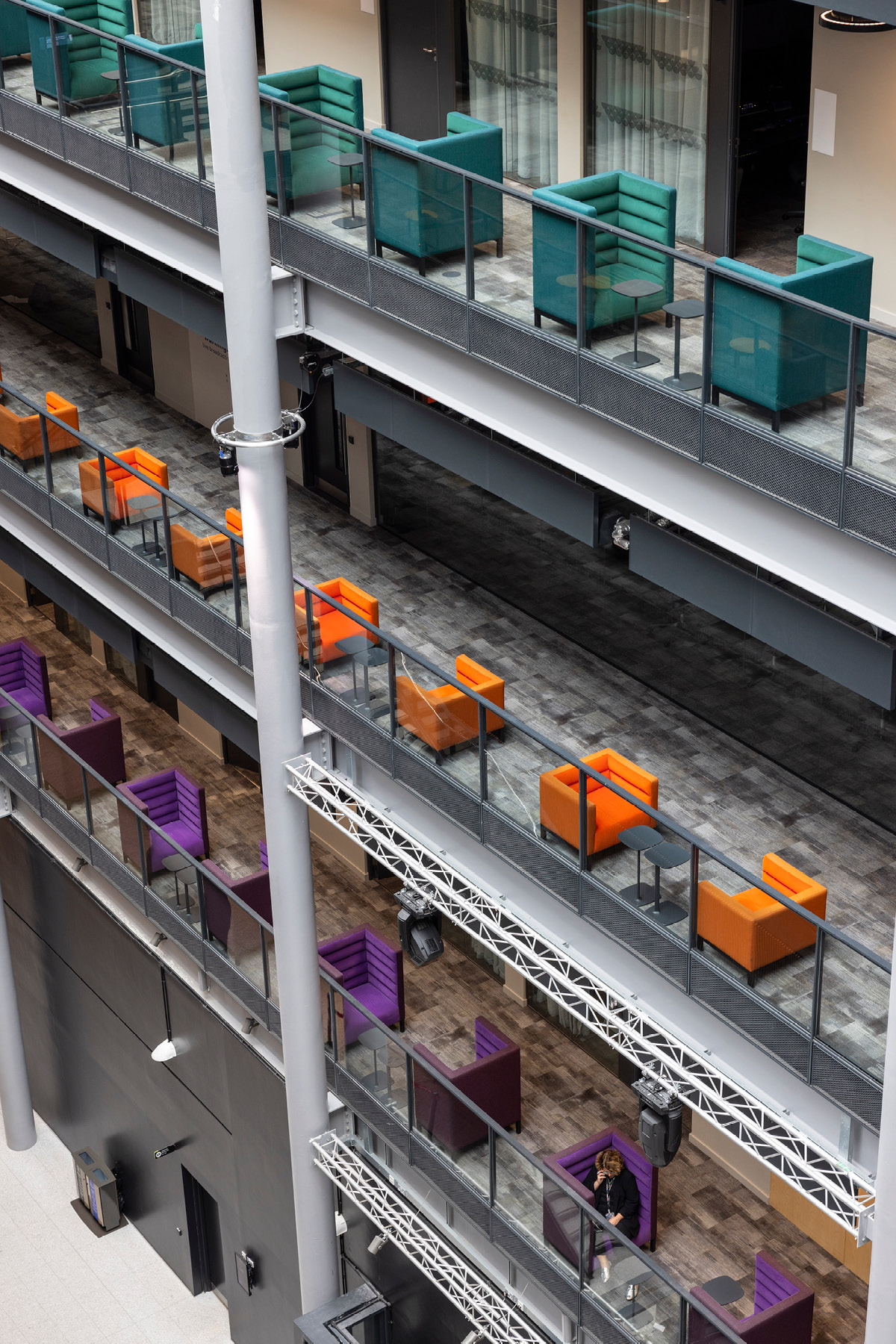
In the past few years, the broadcaster has undergone significant reforms. These include moving, for the first time, over half of its staff outside of London to better reflect its audience, embracing sustainability, new technology and ways of working. All of these major shifts have been reflected in its property portfolio and Bainbridge has been at the forefront.
In a typically understated way, he describes his job as “very, very, varied”. He looks after an extensive property portfolio, which ranges from Broadcasting House to MediaCityUK in Salford (housing 3,200 staff), to its 155,582ft2 studios in Central Square, Cardiff and smaller buildings in Scotland and Jersey. He also oversees facilities management throughout the UK estate, workplace transformation and translating sustainability targets into the property and FM strategy.
“My job”, he says, “is to keep the people who work here safe. My next job is to make it a delight to work here and to make sure that people can do their best.” He says that intrinsic in everything he does is accessibility and ensuring the buildings “support as wide a range of people as best we can. Doing that in the most sustainable way possible.”
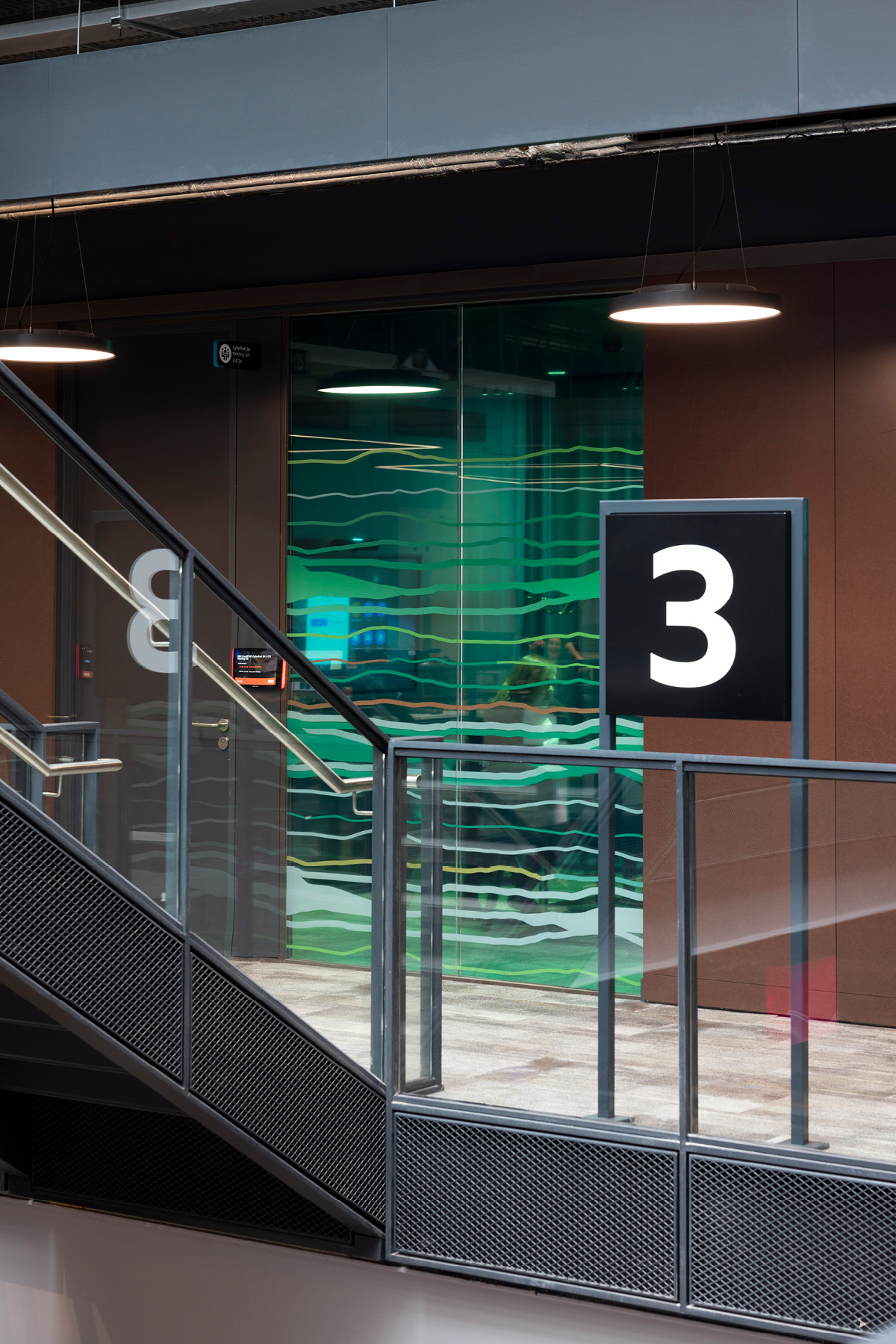
“My job is to keep the people who work for the organisation safe” Alan Bainbridge FRICS, BBC’s director of workplace and corporate real estate
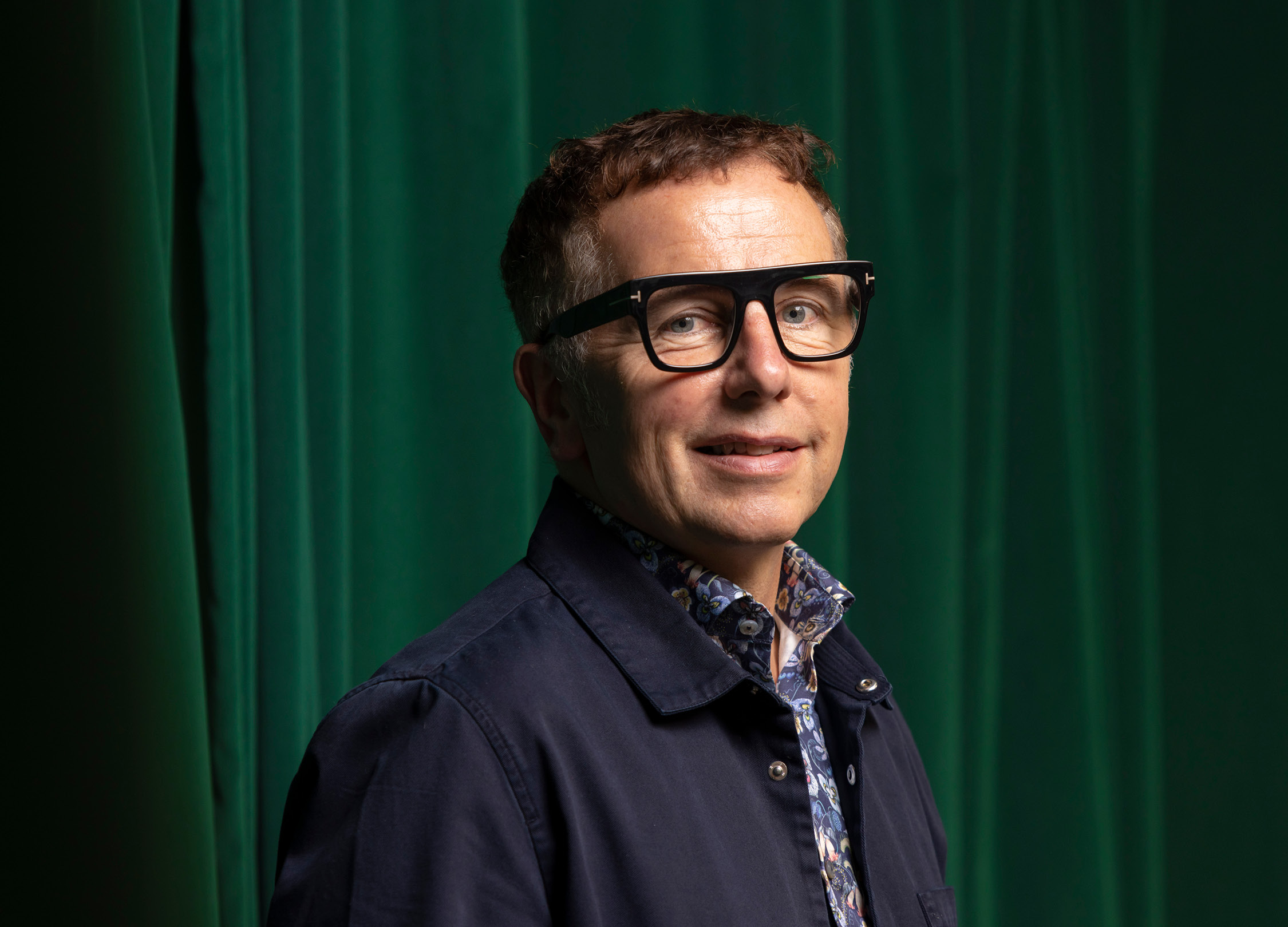
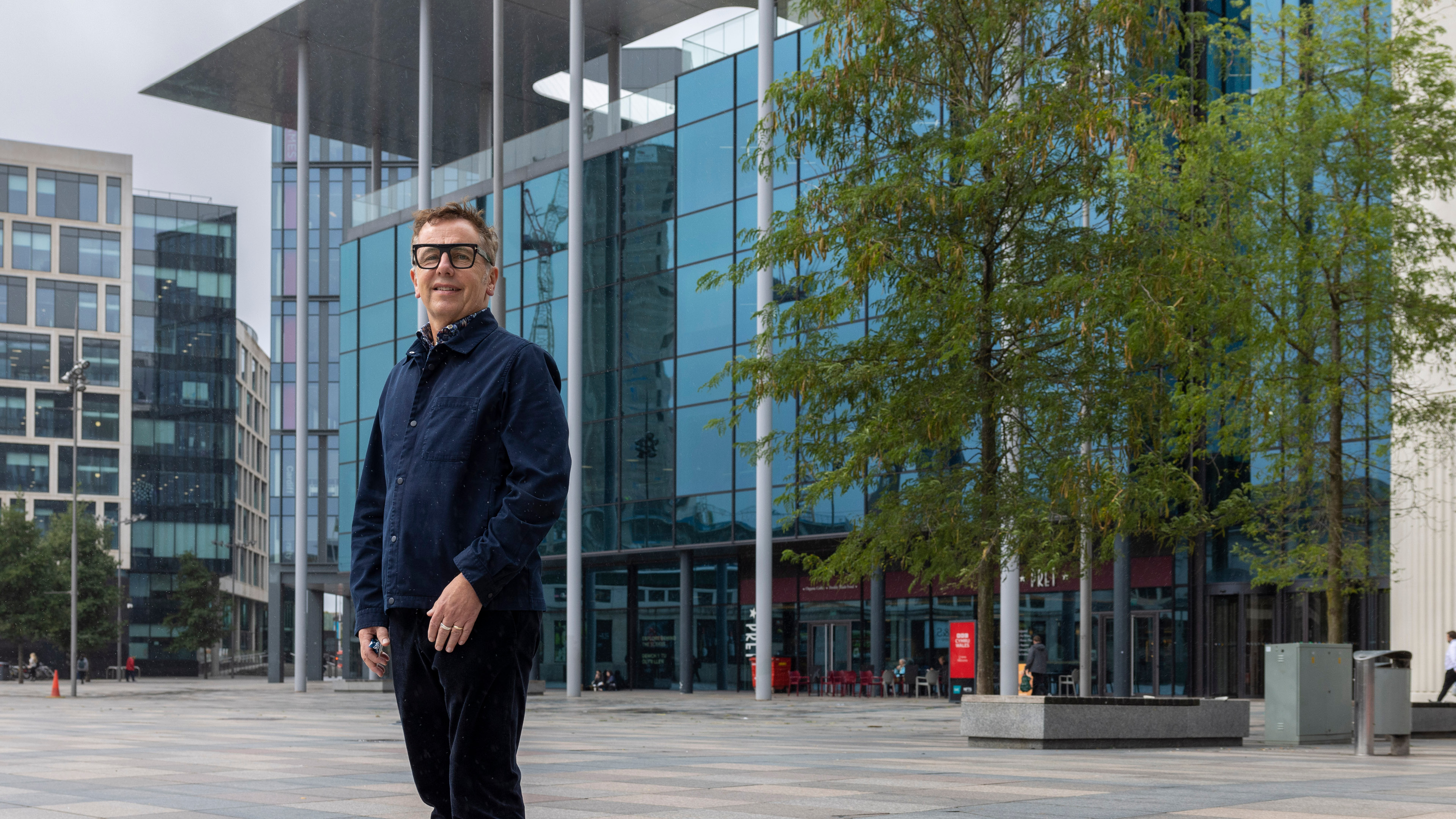
Public and political scrutiny
On paper, Bainbridge is there to provide the essential bricks, mortar and services to enable broadcasting continues smoothly. But there are surprising amounts of layers to his job. There’s the creation of workplaces that must stand the test of time and technology, while also supporting the workforce’s practical and emotional needs. Then there’s maintaining nationally critical buildings, facing intense public and political scrutiny, and implementing an enormous social and economic responsibility as a publicly funded organisation.
He says his current preoccupation is trying to predict what will be next in the workplace to ensure the estate has enough “flex” in it for the future. When he joined the broadcaster in 2008, he was part of a £224m project to relocate over 500 London-based staff to the north of England in Salford. The iPhone, which bought broadcast-like tech into people’s pockets, was yet to be launched and Salford was designed around activity and flexibility.
“Thinking about that makes me feel a 100-years old,” he laughs. “In five years’ time goodness know what it will be. We’re trying to imagine that so the building can flex, bend and swerve with those departments that are coming,” he says. He adds that the interaction between the employee and the building is different now and designing is much more people-centric, an ethos that fits with him personally. “I'm hugely passionate about the built environment and the impact that it has on you as a human being,” he explains. “What happens to you emotionally when you walk through those doors, by the time you’re sitting in a meeting, or in front of your microphone, that’s a massive impact the built environment has had on you.”
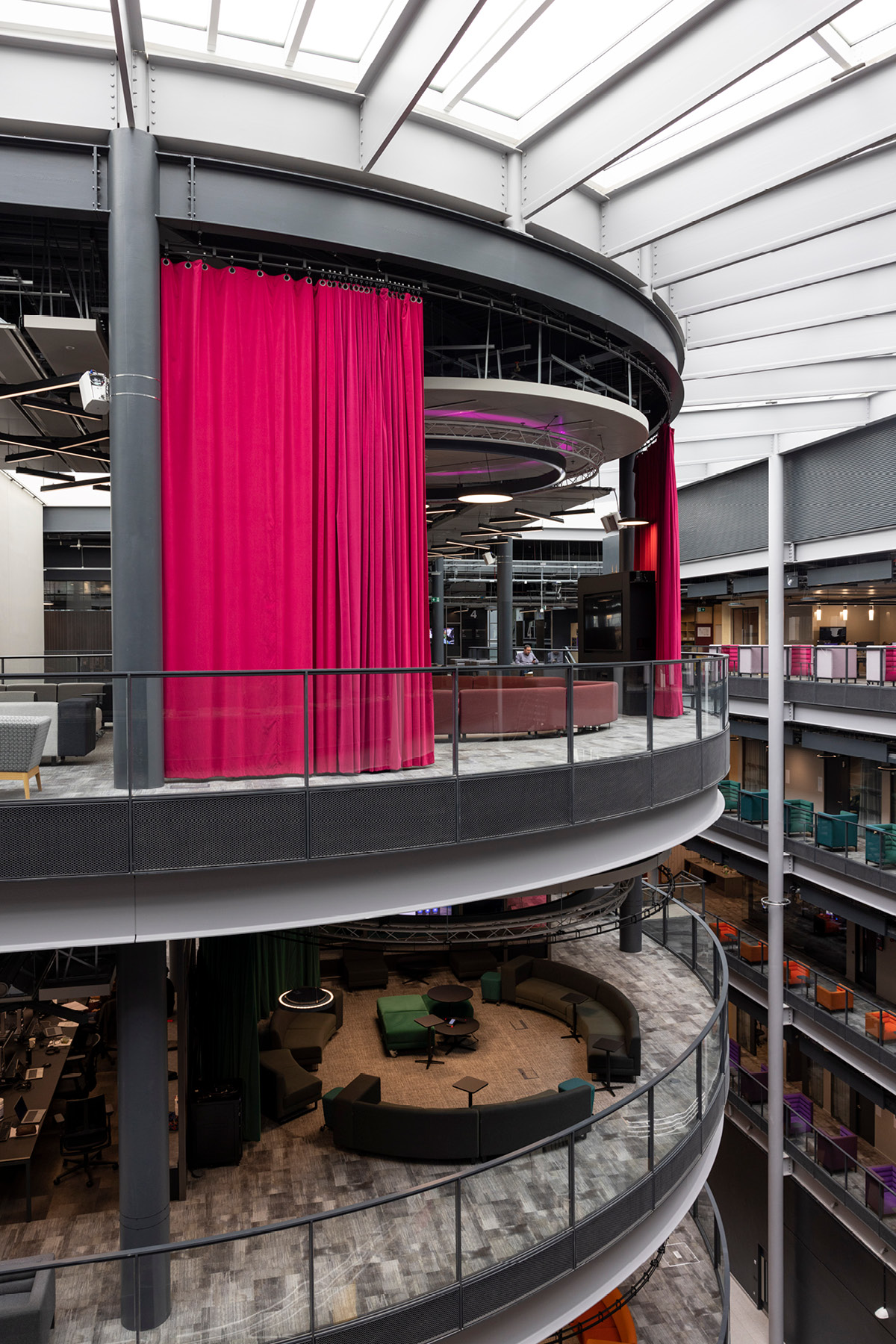
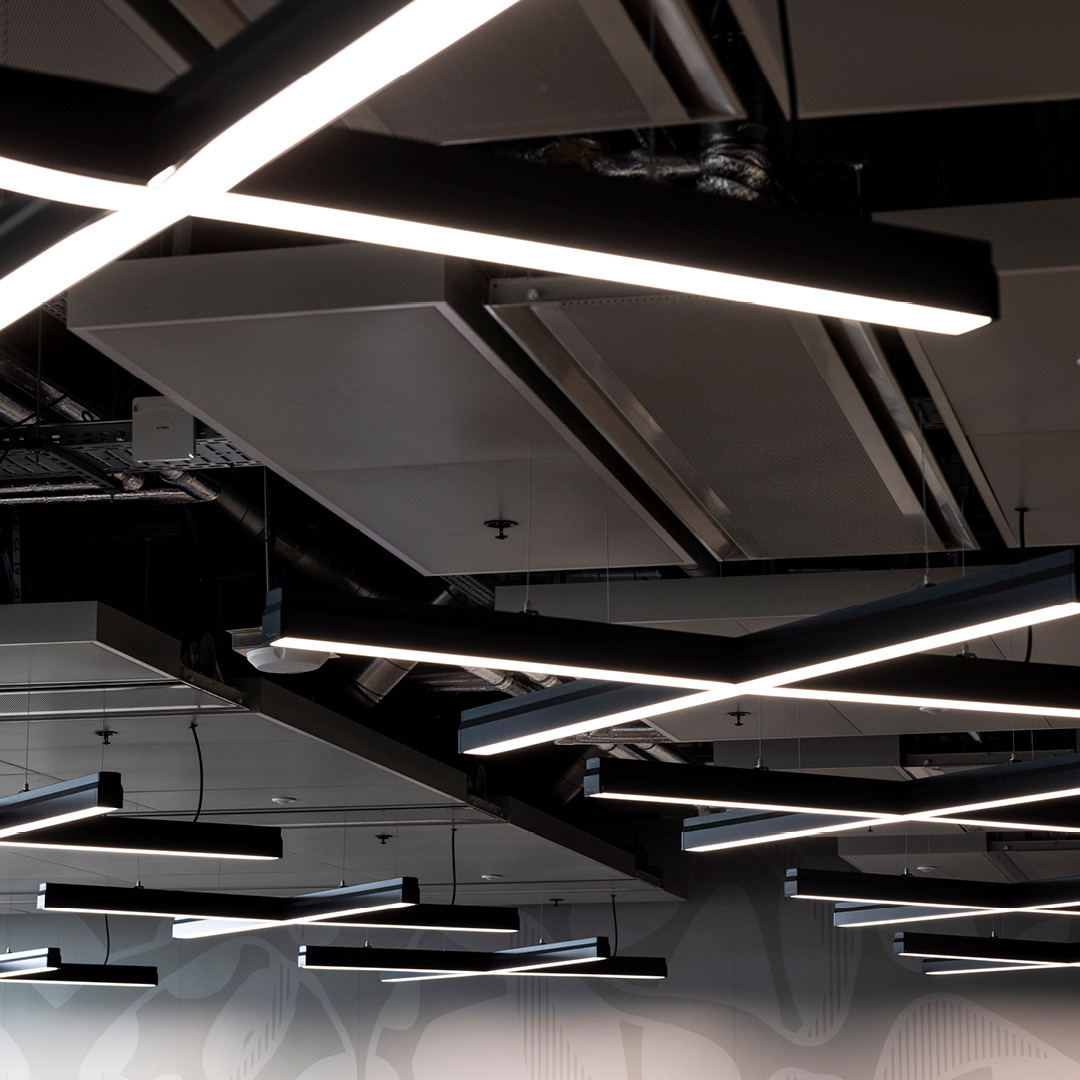
“I'm hugely passionate about the built environment and the impact that it has on you as a human being” Alan Bainbridge FRICS, BBC’s director of workplace and corporate real estate
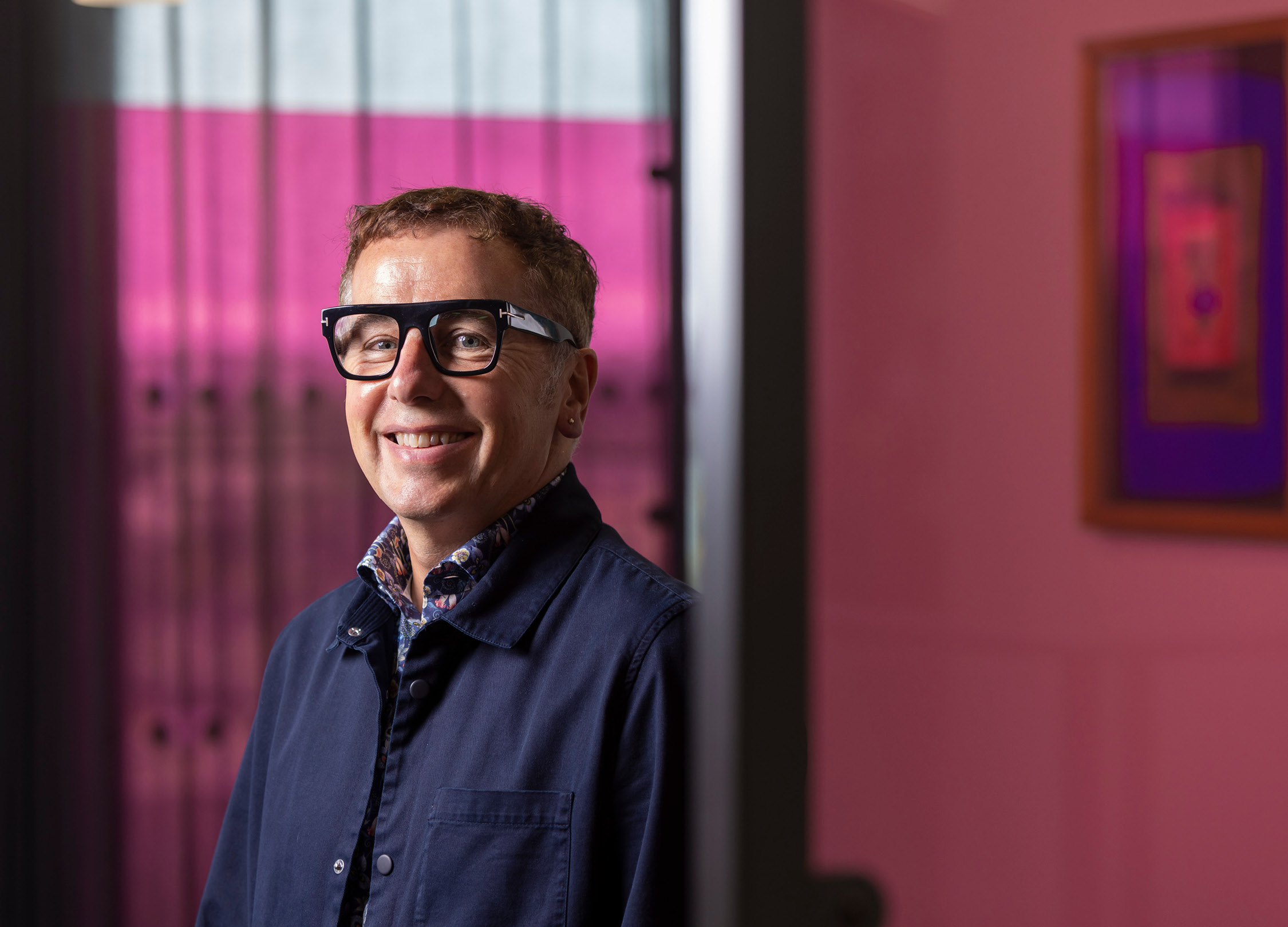
This can clearly be felt in the BBC Wales HQ in Central Square, Cardiff. Opened in 2019, the building has been designed to consider the needs of neurodiverse workers and visitors. This includes non-flickering lights to reduce sensory disturbance, pockets of calm working spaces throughout the floors and the use of specific colours and contrasts in the fabric and flooring. At the start of the project, Bainbridge wore a VR headset to try and understand the experience of a neurodiverse person in an office environment. Now he says he's incredibly proud that Cardiff “pushed the boundary to a great level” on accessibility.
Asked what has touched him the most during his time at the corporation, he recounts a story from 2011 when Salford first opened. “I sat next to a guy in the canteen and asked him where he worked before,” he says. “He said ‘this is my first job, and this is the first job anybody in my family has ever had in three generations’. That is a ripple of a pound that we spent, and I always keep him in mind.”
He explains that once buildings in the estate become obsolete for accessibility and sustainability, he then looks for locations to maximise the broadcaster’s economic and social impact. “What I want the property to do is have the biggest impact for the widest community possible. So, it makes for a very intricate selection of where we go and what we are going to do. Some might find that a restriction, but I find it makes for a much richer decision.”
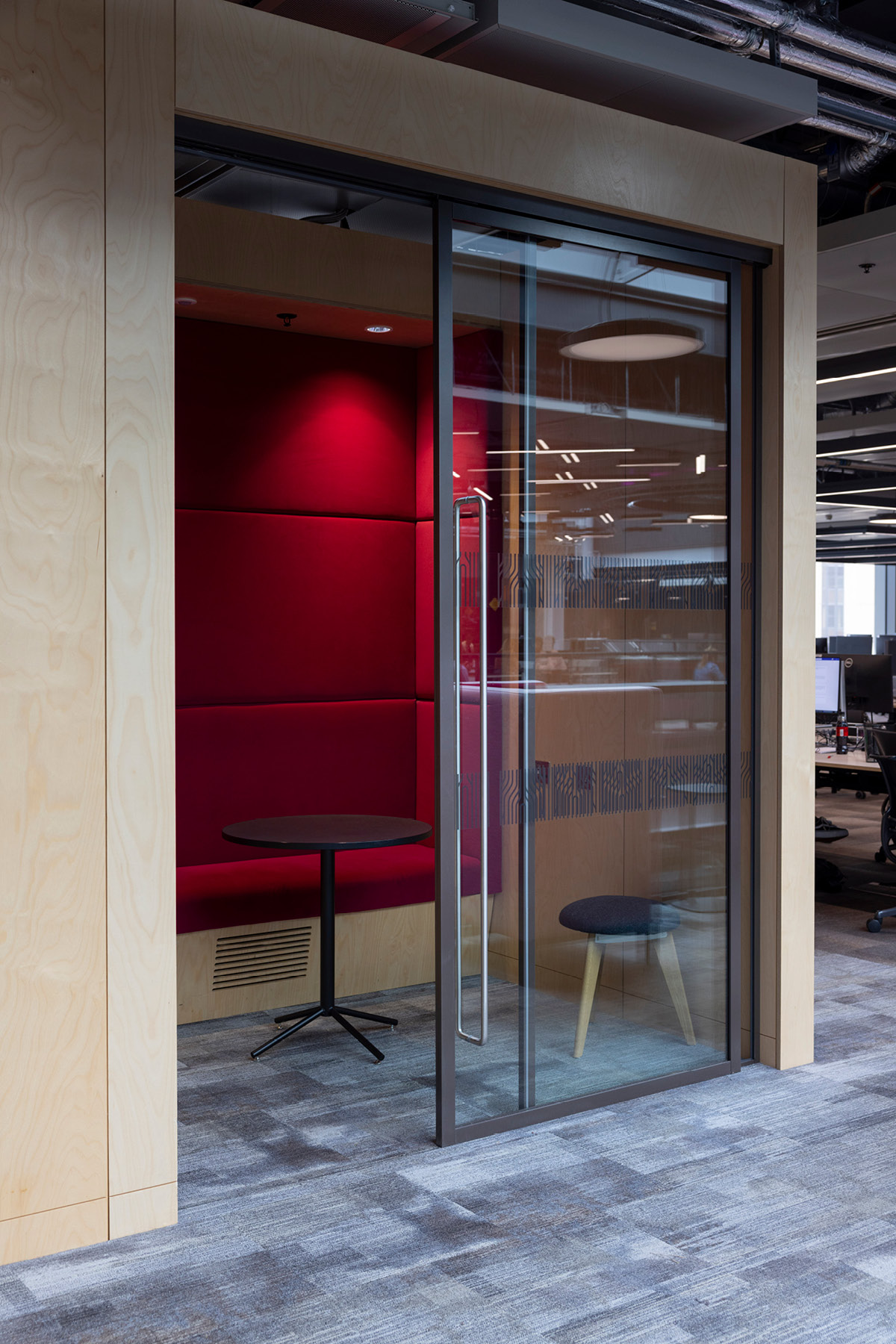
This booth is an example of how all spaces have been considered for wheelchair users
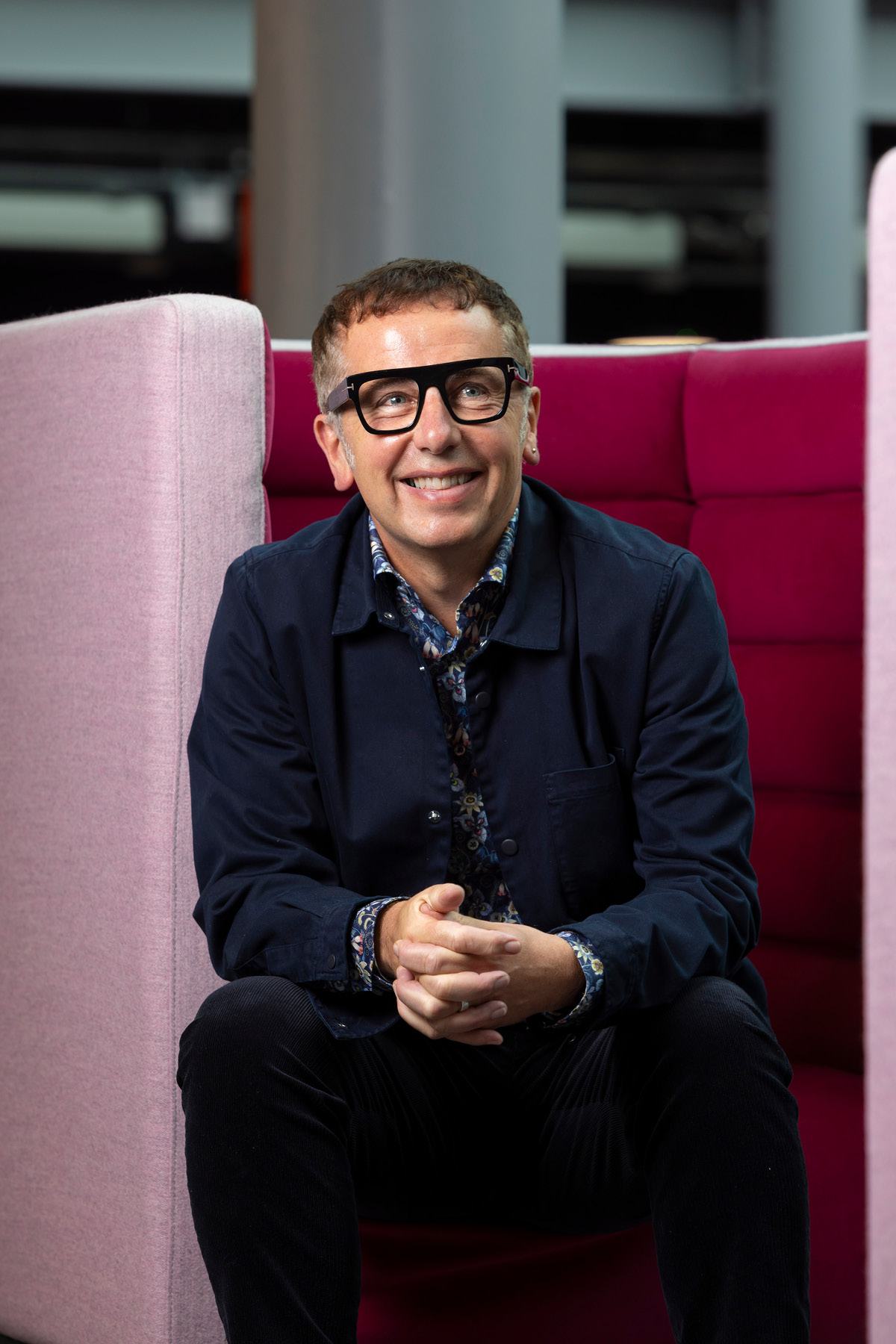

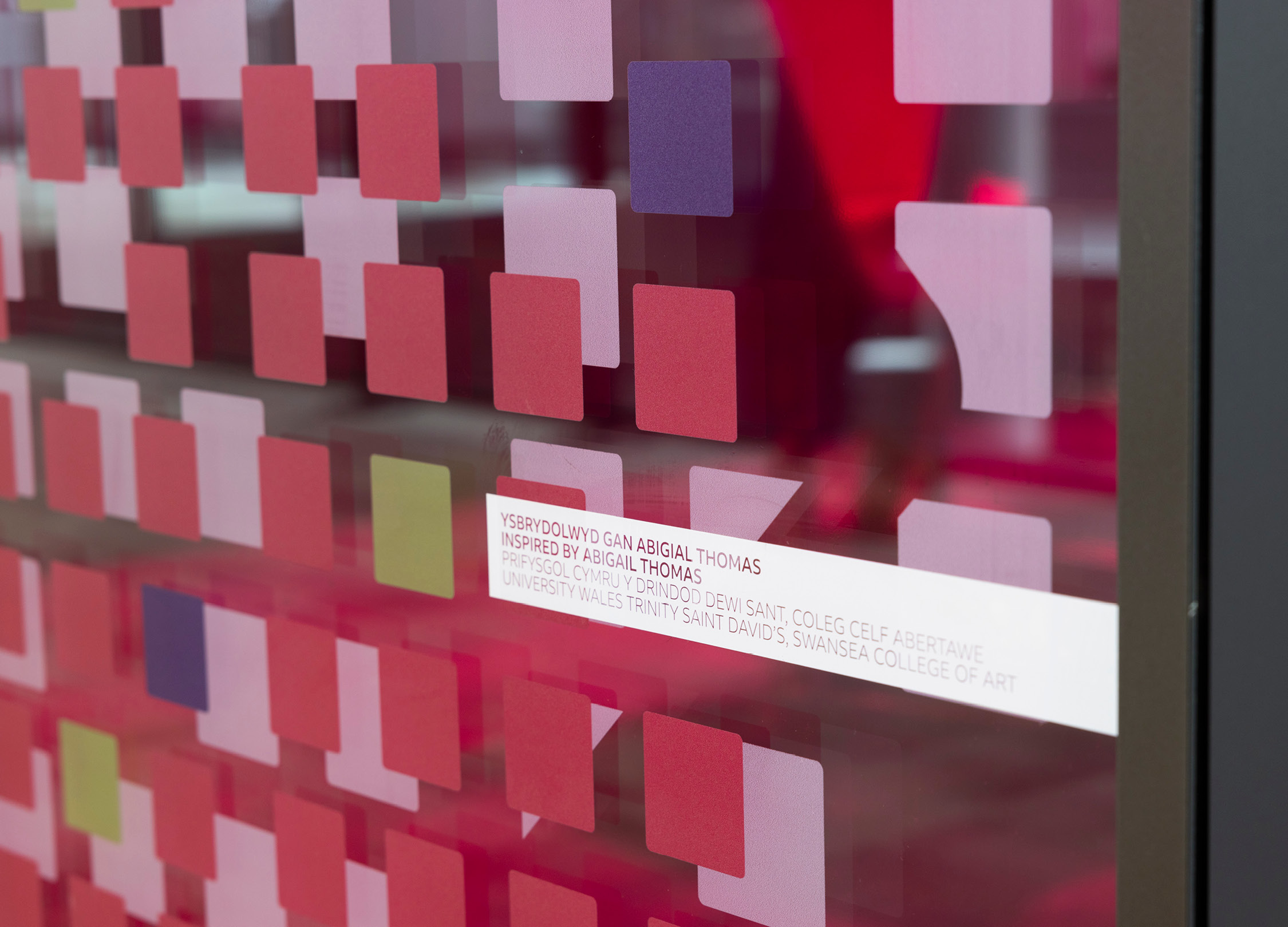
Artwork by local students has been featured throughout the design of the office
Working with integrity
He says his professional ethics of “doing the right thing, honesty and integrity” fit with the corporation’s – one of the reasons he wanted to work for it. “Everything we do has to be able to be scrutinised, so you do it properly, and you do it with integrity.” This belief is also evidenced in Bainbridge’s sustainability strategy, which he says isn’t something that “you can pretend to be doing”.
The broadcaster has committed to reducing its greenhouse gas emissions from its direct operations by 46% by 2030, and by 28% from its value chain, all measured from its 2019 baseline. It has also signed up to the rigorous Science Based Targets Initiative. It expects its property estate to reduce its direct emissions by 15% in 2023/24 against its baseline.
Bainbridge says this sizeable reduction has a number of strands: from long-term energy and waste reduction plans, to reverting buildings to recirculated air, property consolidations and disposals, to larger scale projects like the photovoltaic installation in its Glasgow studio car park.
Its major buildings, London Broadcasting House, Salford, Cardiff, and its latest one planned in Digbeth, Birmingham, all have high sustainability specs. Cardiff is BREEAM outstanding, has solar panels on its roof, uses rainwater attenuation and a recycling system for its toilets. Bainbridge also stipulated low waste design in its construction, part of a whole life carbon approach, and says his team went into a lot of detail following supply chains so “we knew where our stuff was coming from”.
Next on his ‘to-do’ list is Digbeth, a new headquarters for the corporation in the West Midlands, which the local council has already said will be used to help regenerate the area. Staff will move from their current Birmingham base into Digbeth in 2026.
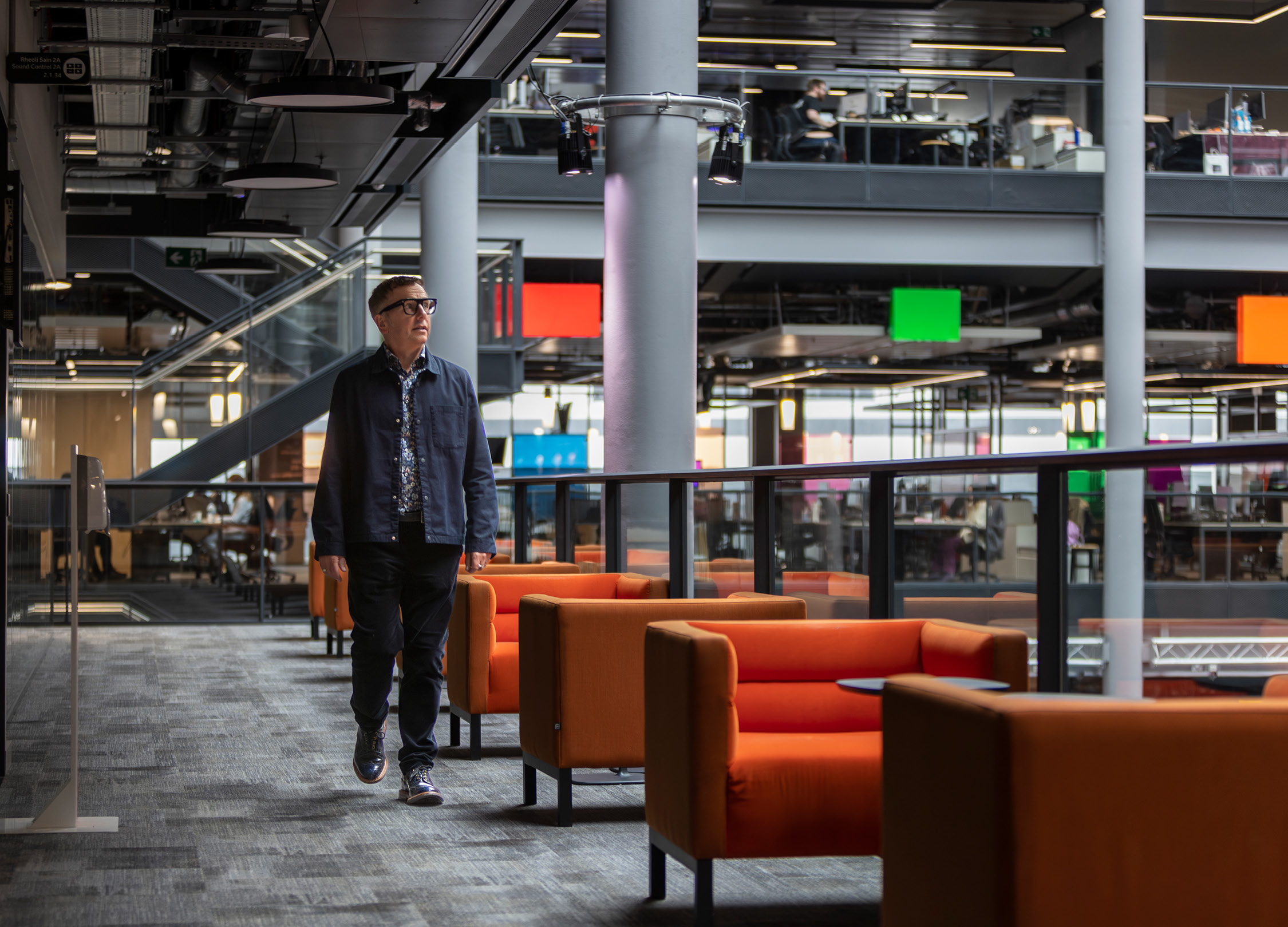
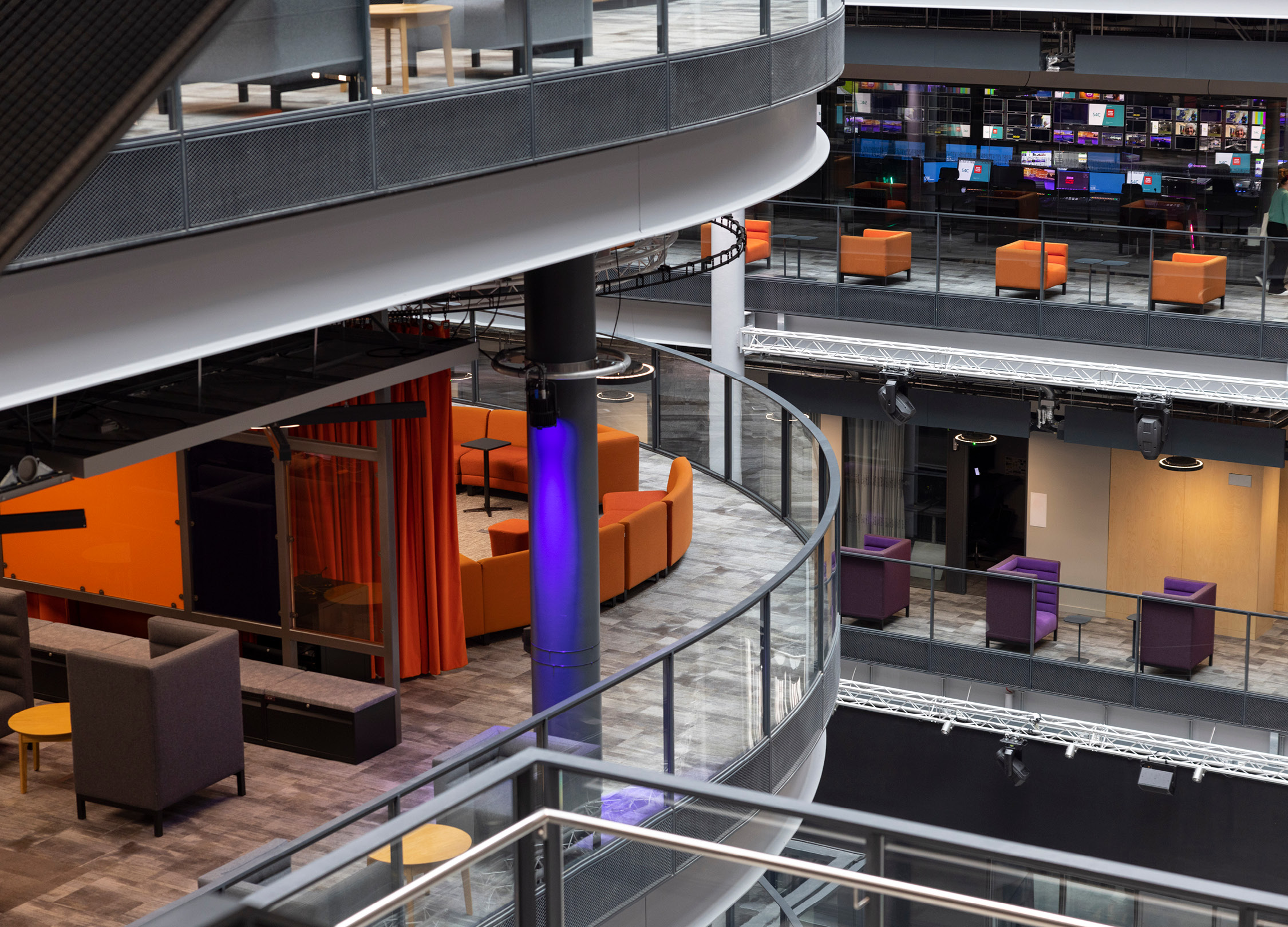
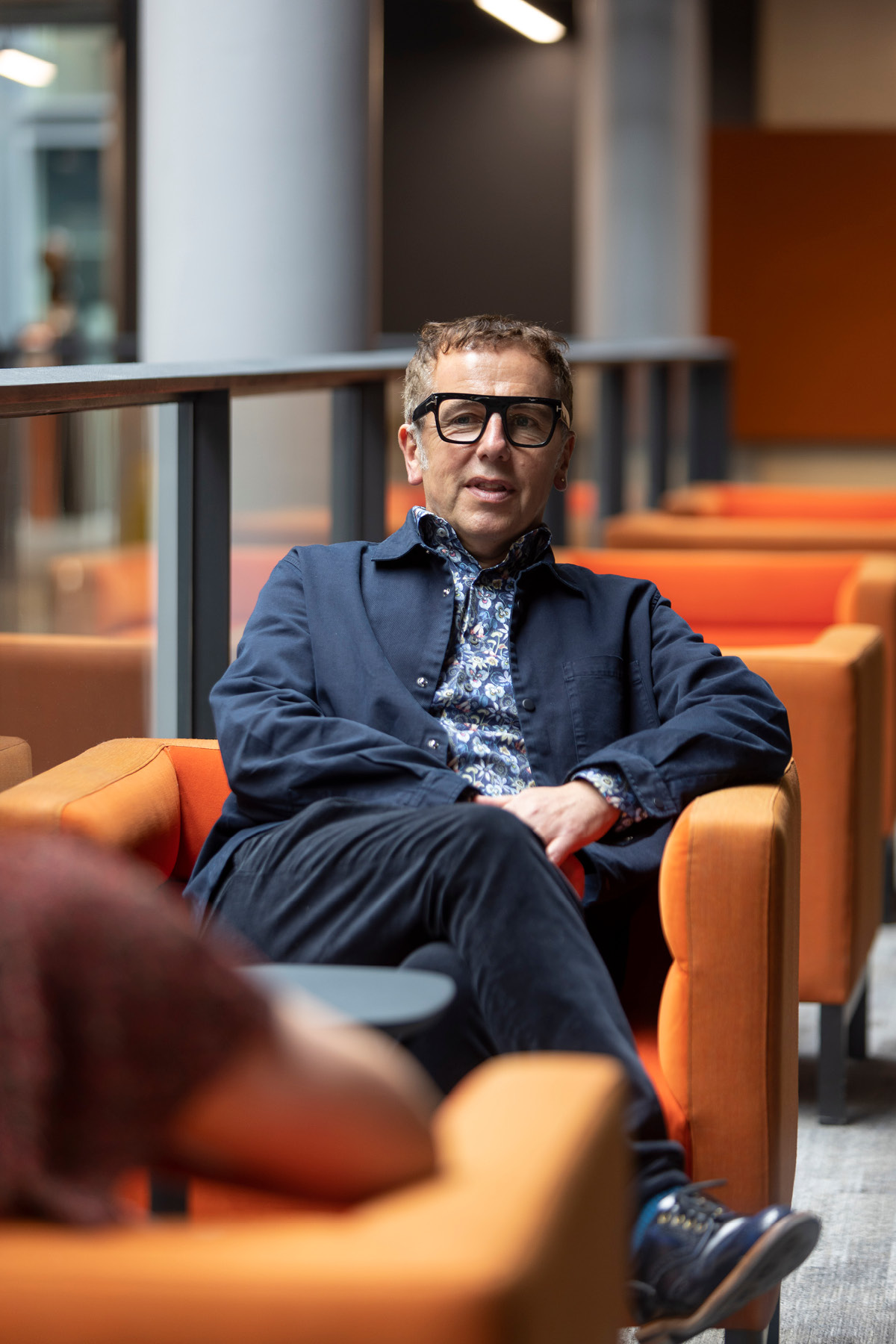
Get the brief right
Bainbridge seems confident, even relaxed about these multimillion pound projects, which have all been delivered on time, on budget and most importantly, without disrupting broadcasting. “The absolute passion that goes back to my early days of training is concentrate on the brief, get the brief correct,” he says. “Then you need to ensure that you all stick to what was designed in the way the contract said and you get success. The moment you try to leap over that you end up in trouble, whether that’s building a garden shed or building something for £2bn.”
Bainbridge does, of course, have a wealth of experience in the property industry to fall back on, including at Laing, Lend Lease and as director of the British Council for Offices for nine years. He says despite working in such a high-profile role nothing keeps him awake at night, partly because he lives in Derbyshire, a more relaxed part of the world and because of the people around him. “People who are successful will have a really good team behind them, that’s at home and at work,” he says.
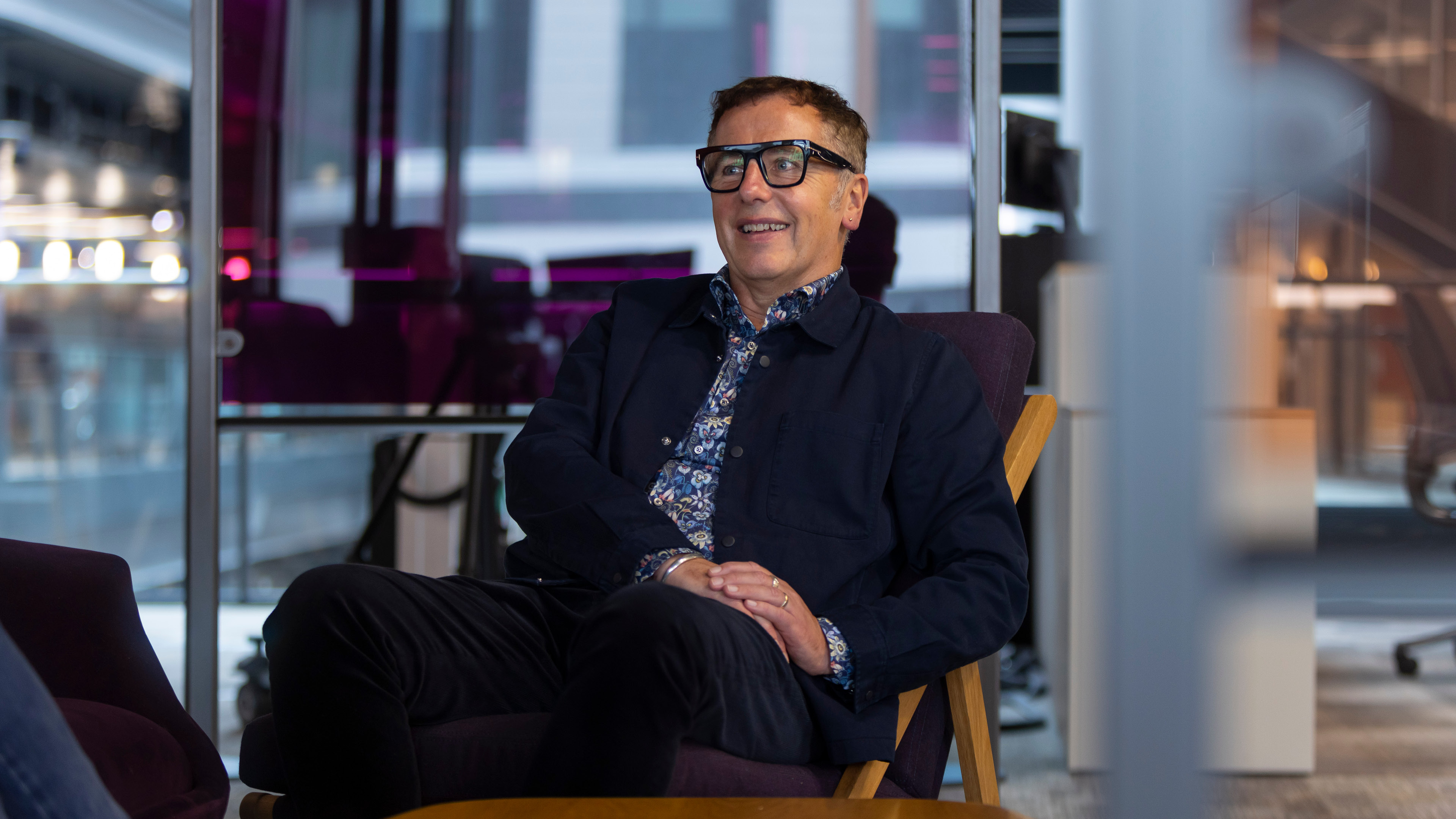
“Everything we do has to be able to be scrutinised, so you do it properly, and you do it with integrity” Alan Bainbridge FRICS, BBC’s director of workplace and corporate real estate

